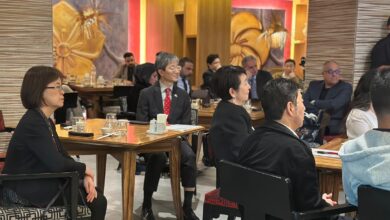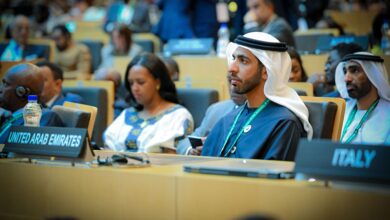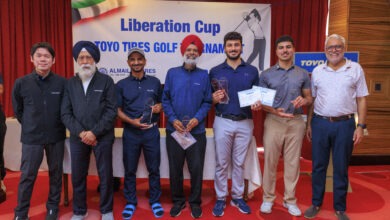India beat Pakistan by seven wickets in the Asia Cup final
BCCI secretary Devajit Saikia says India had taken a collective decision not to accept the trophy from ACC president Mohsin Naqvi. He called the situation “very unfortunate” and said the Board would lodge a “serious and strong protest” at the ICC’s upcoming conference in Dubai. He added that India expected the trophy and medals to be handed over to the team in due course.
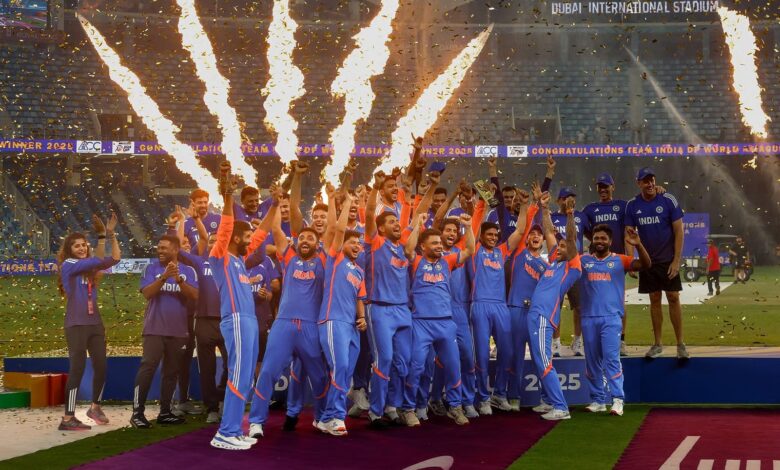
India claimed their ninth Asia Cup title in Dubai after a tense chase against Pakistan, winning a final that lived up to decades of anticipation. Chasing 146, India were rocked early at 20 for 3, with their star-studded batting lineup under pressure and a billion fans anxious back home. The collapse of Pakistan earlier in the day had given India a modest target, but the chase was far from straightforward.
Pakistan’s innings had begun brightly thanks to Sahibzada Farhan, who blazed a 50 off 35 balls with aggressive powerplay hitting. Alongside Fakhar Zaman, he put India’s spinners under pressure, particularly Kuldeep Yadav. But once Varun Chakravarthy struck to remove both top scorers, the collapse began. Pakistan slid from 107 for 1 to 140 all out, losing nine wickets in the space of 33 runs, undone by mis-hits and India’s disciplined spin attack.
India’s reply quickly unraveled as Pakistan struck early blows, dismissing Abhishek Sharma and exposing the middle order. At this point, Tilak Varma stood tall, absorbing pressure with calm shot selection. Unlike teammates who forced the pace, he trusted his timing, working singles and waiting for the right balls to attack. His half-century, built on composure and problem-solving, proved the backbone of India’s chase.
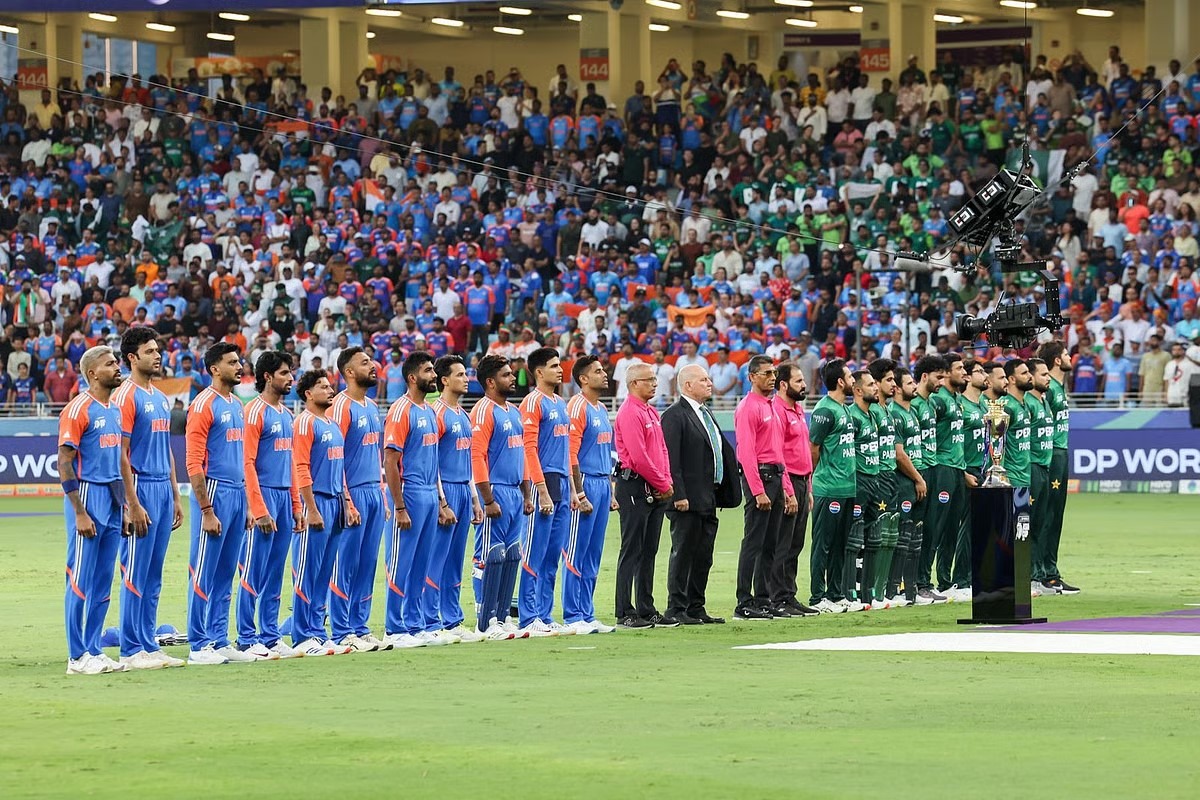
The turning point came in the 15th over when Tilak punished Haris Rauf for 17 runs, shifting momentum back India’s way. At the other end, Shivam Dube played a vital cameo, smashing two crucial sixes in his 33 off 22. His partnership of 60 runs in 40 balls with Tilak steadied India, showcasing his ability to step up in the absence of Hardik Pandya. Dube also contributed with the ball, opening the attack for the first time and keeping things tight.
The final stages were charged with tension, reflecting the political backdrop of India-Pakistan relations this year. Players avoided handshakes, captains avoided eye contact, and gestures on the field added to the edge. Coaches Mike Hesson and Gautam Gambhir were deeply involved from the sidelines as the equation tightened: 30 off 18, 17 off 12, 10 off 6.
With eight needed off five, Tilak smashed Rauf for a towering six over square leg to seal the victory. The celebration that followed — heart signs, wild sprints, and bench-thumping — summed up the release of tension after a classic battle. For India, it was a title clinched through resilience and the rise of a new star in Tilak Varma, whose calm brilliance defined one of the most memorable India-Pakistan clashes in Asia Cup history.
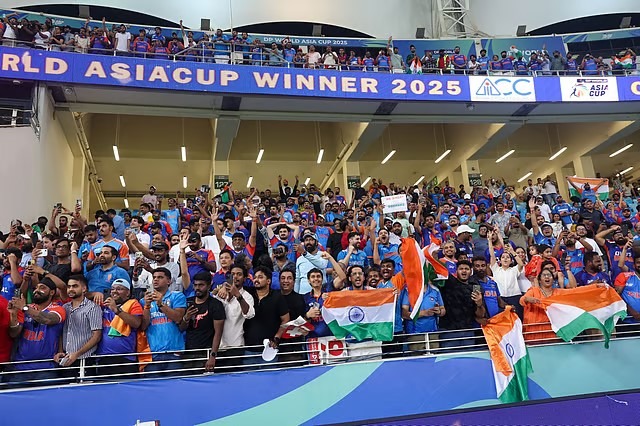
Meanwhile, the Asia Cup 2025 final in Dubai ended in controversy after India defeated Pakistan by five wickets but refused to accept the trophy. The presentation ceremony, delayed by more than an hour, collapsed into confusion when the Indian team declined to receive the trophy from Asian Cricket Council (ACC) president Mohsin Naqvi, who is also the chairman of the Pakistan Cricket Board and Pakistan’s Interior Minister.
BCCI secretary Devajit Saikia confirmed that India had taken a collective decision not to accept the trophy from Naqvi. He called the situation “very unfortunate” and said the Board would lodge a “serious and strong protest” at the ICC’s upcoming conference in Dubai. He added that India expected the trophy and medals to be handed over to the team in due course.
During the chaotic ceremony, individual awards were distributed by other dignitaries while Naqvi presented only the runners-up cheque to Pakistan captain Salman Agha. Indian captain Suryakumar Yadav expressed disappointment, saying he had never seen a champion team denied a trophy. He stressed that the decision was made by the players themselves, adding that for him, the “real trophies” were his teammates and support staff.
Tensions were evident throughout the evening. While the Pakistan team had returned to their dressing room, the Indians remained on the field, waiting as officials debated.
Eventually, the trophy was removed from the stage without explanation. When the Indian players received their individual awards, they avoided acknowledging Naqvi, who in turn did not applaud them. Without the trophy on stage, the Indian team later celebrated by posing with an imaginary trophy.
India’s refusal was not unexpected. The team had consistently avoided handshakes with Pakistan during the tournament and on several occasions exchanged verbal spats on the field. The charged political atmosphere spilled into cricket, with players like Suryakumar and Haris Rauf even fined for provocative behavior in earlier games.
The incident capped a heated tournament between the two rivals, where cricketing excellence was overshadowed by political tensions. While India celebrated their ninth Asia Cup victory, the absence of the trophy presentation highlighted the deep strain in relations between the two teams — extending far beyond the boundary.
Follow The Times Kuwait on
X, Instagram and Facebook for the latest news updates










